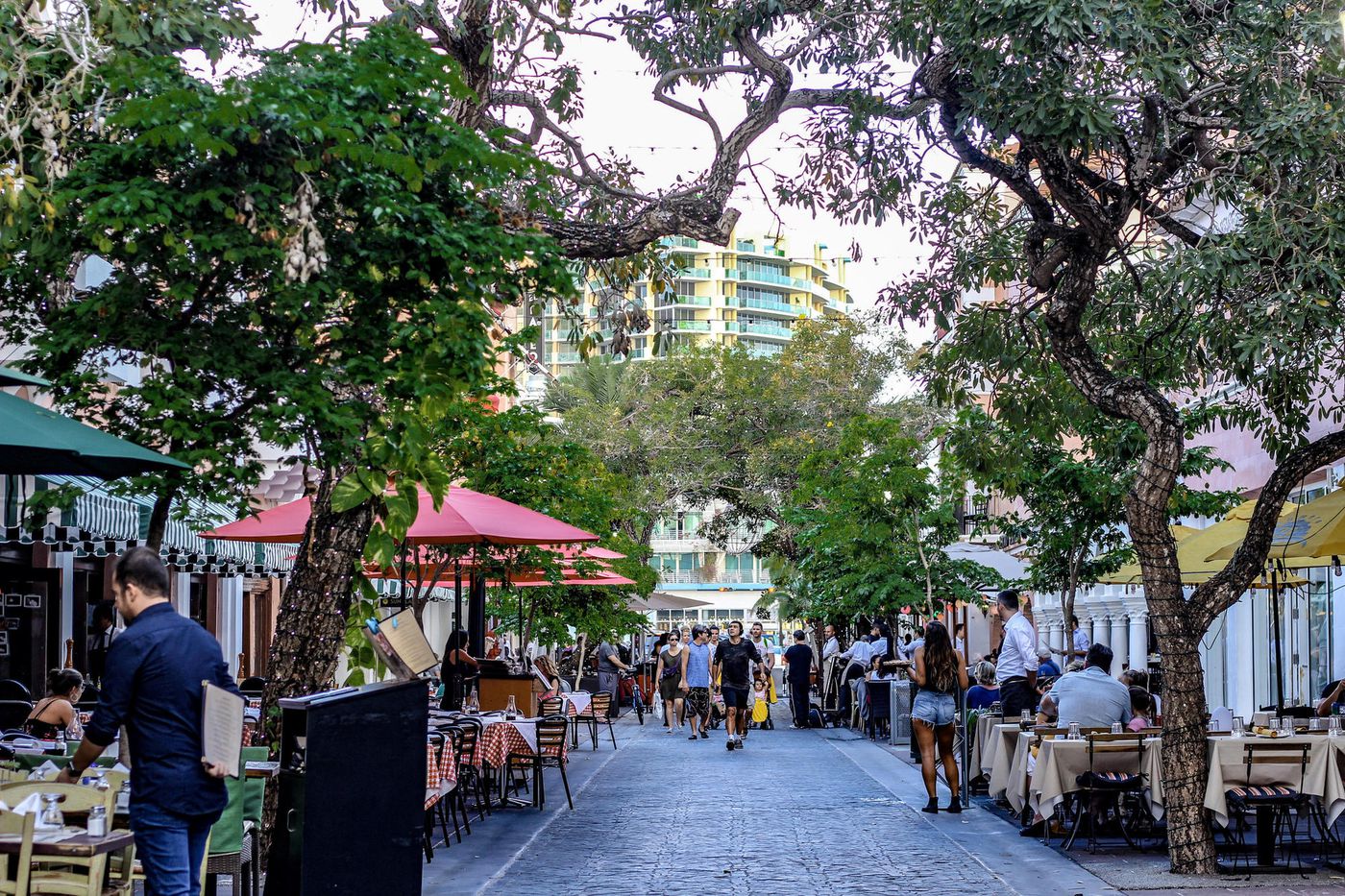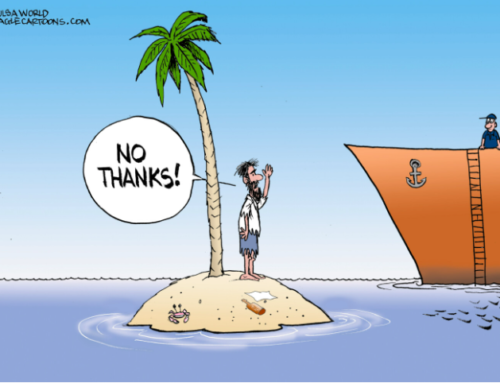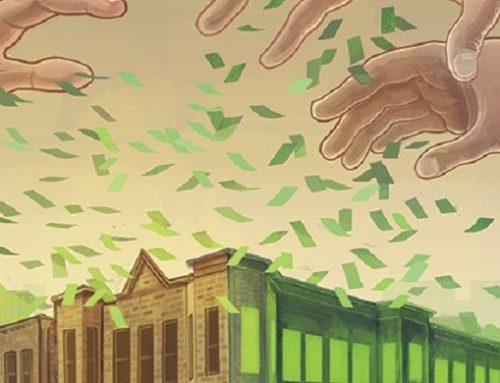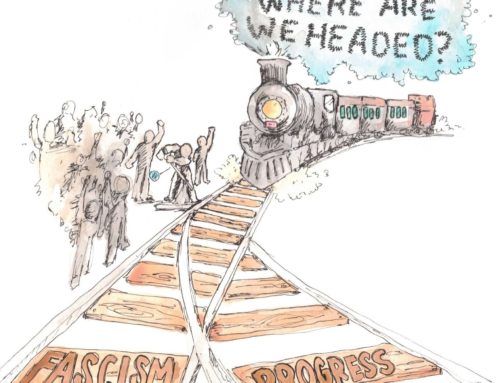Hospitality and tourism are some of the largest employers in Miami, and it is the first industry to be severely crippled by the coronavirus outbreak. Since the beginning of March, this workforce has been experiencing layoffs and cut hours so drastic that it has changed the outlook of an entire industry in a matter of weeks. While we face the likelihood that many of us will have to change careers, there are workers who do not have that option whose jobs have become more demanding and less safe. Then there are many who are not yet experiencing the economic consequences of this crisis, working from home and isolating from the virus. In class divided society, the effects of the COVID-19 pandemic will operate within that class structure and create fundamentally different experiences of the crisis. To create solutions to our problems, rather than be continuously putting out fires and slapping band-aids on broken systems, it would help us to recognize those differences and how they ultimately serve the interests of the capitalist class.
I work in a restaurant in one of the neighborhoods of Miami. My hours have been severely cut and when I am there, the tip share is significantly lower – not enough to pay bills to say the least. Within a week my job description has changed entirely. Two weeks ago I was making cocktails and curating pleasant dining experiences. Now I take phone orders, drop off food to peoples houses and try to keep busy cleaning in the downtime for risk that the owners are going to get resentful that they’re paying us $5.50 an hour and we’re not doing enough. The insulting part of it is when I go to the houses of our wealthy patrons on deliveries and get a little bit of insight into their reality in this crisis. They’re too afraid to even open the door and see the person delivering their food to them. They nervously crack the door open, ask me to leave the bag on the doorstep and say “I’m so sorry but you understand, it has to be like this.” Has to be like what? I’m afraid too! I have a high-risk family member that needs my help, and every time I see them I am terrified that the last time I worked or went to get groceries I was exposed to the virus and will kill them. Self-isolating is not an option for me, or grocery store clerks, or delivery drivers, or construction workers. But we’re not all out here treating each other like toxic waste.
My partner’s experience has been different although they are in the same industry, because they were laid off pretty much immediately. The chef they worked for is highly respected, award-winning, and has a lot of restaurants and projects opening right now (or did). After the first weekend of restaurants starting to feel the impact of COVID-19, before there were any mandates for closing dining rooms, he started with the lay-offs. He wrote on instagram that same day saying “Hey business owners! No one is judging you! I’m so sorry it has to be like this!” It has to be like fucking what? That some of us deserve our livelihood and some of us don’t? One week later and all dining rooms were closed, every front of house worker in his restaurants wasn’t getting hours, but he showcased who he really aligns with in that moment of panic. Not the people who do the actual work and earn him his money, but his fellow business owners. Who, for the record, are sure as shit getting judged, just not by each other I guess.
So now many of us are trying to predict what the service industry landscape is going to look like post coronavirus, if our expertise is going to be relevant in the changing economy. Many people are telling us to apply for grocery stores, Walmart, Costco or Amazon. Even before the virus, Amazon workers were saying that conditions in the warehouses were unsafe. Now their workload has increased, and many are going on strike because they are required to risk their health to make a living. The economy is shifting, and our choices for employment are going to become limited, but nevertheless we have options. That is not the case for many workers.
For those whose exploitation the functioning of our society really depends on, there is no choice but to continue to work in increasingly dangerous conditions. Workers in agriculture and manufacturing, many of whom are undocumented and thus excluded from the relief package from the government, are working as normal in order to survive. In the back of house of restaurants all around the country, there are undocumented “essential workers” who have to continue to work for minimum wage, many who’s hours have been cut. Their employers continue to profit under this crisis while offering limited or no safety equipment or training and no paid sick leave. Two trillion dollars of relief all packaged up together for large corporations, small business owners and individual U.S. citizens without a second thought for the undocumented or families of mixed status. This is a clear example to show that class is not about income, but about the social practices that we participate in to survive and maintain a “standard of living”.
So if class is not about income, what is it about? Let’s take a step back for a second. Every society has to organize production and distribution. We call the organization of production a division of labor. This simply is a complicated way of saying: who makes what and who distributes what? Let’s take the restaurant as an example. A restaurant produces a commodity, meaning something meant to be sold, which in this case is a (hopefully) delicious meal. What do we need to produce a meal? We need an establishment, a kitchen, pots & pans, ingredients and the list goes on. These are the means to make a meal. Who owns these pots & pans? Is it the chefs? Not likely. It is the restaurant owner. So there we have a distinction. The person who owns the means to make a meal and the person who actually produces the commodity are not the same.
Now we’re ready to answer the question of what class is. Class is a set of relations of production. Meaning, meals have to be made in a restaurant and the relations people have to this process are different. There are those who do the work and those who simply own the means to do the work. This power imbalance is often covered up by capitalist ideology. All the importance is granted to the restaurant owner instead of the workers. But as we’re seeing with wildcat strikes popping up all over the country – without the workers, production stops. Restaurant workers don’t need the owner, the owner needs them. The restaurant owner isn’t actually sorry for laying off workers. Why? Because he knows that the minute he needs new workers, there is a pool of unemployed folks to pull from. Unemployment is crucial for the functioning of capitalism. It’s the only way people have the gall to fire workers and gloat on Instagram about it. Because the system protects them, not the workers.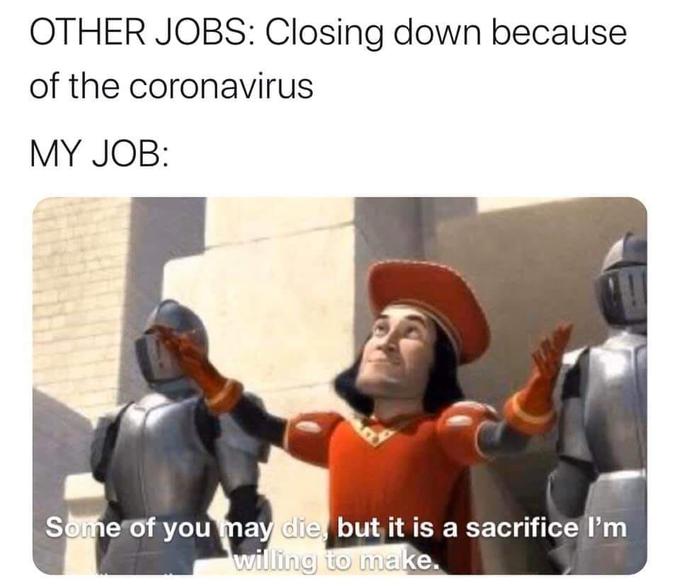
As a matter of fact, the system sets the workers up against themselves. Not only is there a class division between a restaurant owner and the workers, but within the restaurant production itself. The bosses often don’t even oversee the production themselves, but hire managers to do so. The managers in turn oversee a simple division of labor between back of the house and front of the house. In the front of house, the hostess and the busser want to move up to be a bartender or a server. As a whole, they are notoriously in conflict with the back of house. The staff in the back is usually older and not as well paid as the front, and the hot line gets paid better than dish pit and prep, who in most restaurants in my neighborhood are Hatian immigrants. They work the longest hours, do the basic prep without which the kitchen and dining room could not function, and perform the most grueling tasks in the business. Yet they benefit the least from this arrangement, and that is why owners seek out the most vulnerable laborers to fill those positions. We all reap the benefits of their exploitation. So, even though our objective class interests might be the same (meaning we are all exploited by the boss), we are all vying for whatever privileges and perks will align us with the bosses. Now we see that curling up at the owners feet won’t save us from getting kicked when the shit hits the fan.
What does this mean for you? It means that you should take a look at your own class position. Who has the power over your livelihood? Is it you? Or is it your boss? Now look at the people around you. Are they in the same predicament? What are their relations to production like? Where do they fit into the division of labor in society? Of course this doesn’t mean that we all should become our own boss like the bourgeois media states. This, more often than not is a pipe dream that sows even further division amongst workers.Class and class outlook needs to be at the core of our political organizing. We don’t want to organize in the interests of bosses but in the interests of workers. Whatever arrangements capitalists make to skate through this crisis with their profits intact, you can be sure that it will require your continued exploitation. Disaster will strike again be it from climate change, market failure, political maneuvering or whatever else. If we don’t advance our understanding of our relationships with each other, the ruling class will continue to make us believe that we have to fight each other to survive. But just the opposite is true! Never again should we have to watch tens of thousands of people die while capitalists try to decide what fraction of their wealth they’ll allocate to save us. When we band together and build our own organizations to depend on, that’s when we can make demands for a better future.


